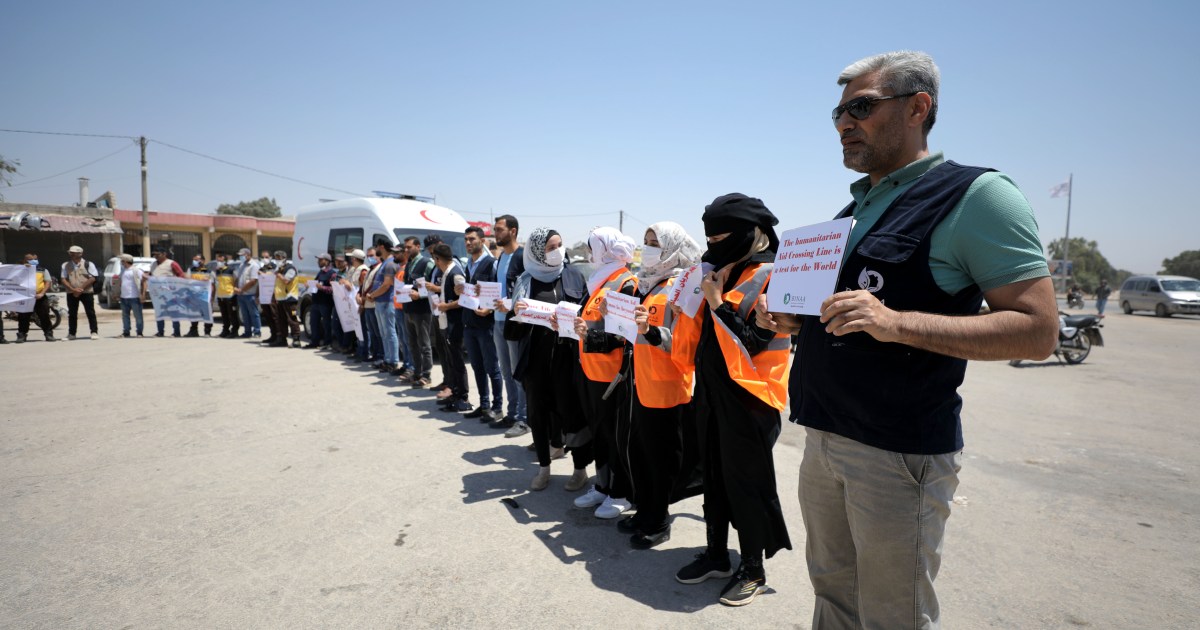Today, Friday, Russia used its veto (veto) during the UN Security Council vote on a draft resolution submitted by Norway and Ireland to extend the mechanism for the delivery of humanitarian aid across the border to Syria without the consent of Damascus for one year, and Moscow accepted only a 6-month extension.
The mandate expires the day after tomorrow, and it has been in effect since 2014 and allows the transfer of aid through the Bab al-Hawa crossing on the Syrian-Turkish border for more than 4 million people in the Idlib region (northwest), which is under the control of opposition groups.
Today, the members of the International Council continued their consultations on a draft resolution to extend the mechanism for the entry of humanitarian aid, after they failed to reach consensus among themselves on this matter at yesterday's meeting.
Western countries are seeking to extend it for a year, which is rejected by Russia, which seeks to limit the entry of aid through Damascus, and proposes a temporary extension of 6 months.
The United Nations says that millions of Syrians in the northwest regions depend on this aid, and warns of a humanitarian catastrophe if the mechanism is terminated or delayed.
On Thursday evening, the Security Council failed to reach an agreement on extending the mandate to transfer humanitarian aid to northwest Syria through the Bab al-Hawa border crossing with Turkey.
This came after consultations in a closed session that lasted for more than 4 and a half hours, at the United Nations Headquarters in New York City.
While the current exceptional mandate for the transfer of UN aid expires on July 10, representatives of member states failed to pass a Norwegian-Irish draft resolution calling for a 12-month extension of the UN mandate.
While Russia insists on a draft resolution that it proposed provides for an extension of the mandate for a period of 6 months only.
A few hours before the session, UN Secretary-General Antonio Guterres called on Security Council members to extend the aid transfer mandate by 12 months.
Stéphane Dujarric, spokesman for Guterres, stressed that this cross-border mechanism is "crucial to us" because it is also important to the men, women and children in Syria who depend on it.
And at the end of last June, the UN envoy to Syria, Geir Pedersen, demanded, in a session of the Security Council, an extension of the authorization to transport aid through the Bab al-Hawa crossing for a whole year.
Pedersen warned of the consequences of the increasing humanitarian needs of civilians, who are in dire need of this assistance, stressing that extending the mandate is a moral obligation.
The majority of the council's member states (15 countries) - with the exception of Russia and China - stress the importance of the continued arrival of aid, to preserve the lives of more than 4.1 million people trapped in northwestern Syria.
Since 2011, Syria has been witnessing a civil war that began after the regime of Bashar al-Assad dealt forcefully with a popular revolution that came out against him on March 15 of the same year, which prompted millions of people to flee and seek refuge in neighboring countries.

